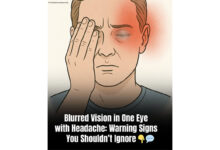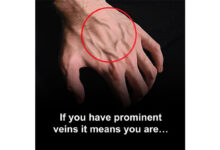What Happens to the Body After Gallbladder Removal?
While the surgery is generally considered safe and effective for relieving symptoms like pain, nausea, and digestive discomfort, the body undergoes significant changes after the gallbladder is removed. In some cases, these changes can lead to new health challenges.
Here’s a detailed look at what happens to the body after gallbladder removal and three diseases or conditions that may follow , along with tips on how to avoid surgery if possible.

What Happens to the Body After Gallbladder Removal?
The gallbladder is a small organ located under the liver that stores bile, a digestive fluid produced by the liver to help break down fats. When the gallbladder is removed, the body must adapt to its absence. Here’s what happens:
- Bile Flow Changes :
- Without the gallbladder, bile flows directly from the liver into the small intestine rather than being stored and released in controlled amounts.
- This continuous flow can lead to digestive issues, especially when consuming fatty foods.
- Fat Digestion Challenges :
- The lack of bile storage may make it harder for the body to digest fats efficiently, leading to symptoms like diarrhea, bloating, and indigestion (a condition known as postcholecystectomy syndrome ).
- Altered Gut Health :
- Bile plays a role in maintaining gut microbiota balance. Changes in bile flow can disrupt the gut microbiome, potentially increasing the risk of inflammation and other digestive disorders.
3 Diseases or Conditions That May Follow Gallbladder Removal
While many people recover well after gallbladder surgery, others may experience complications or develop new health issues. Below are three potential diseases or conditions that may arise after gallbladder removal:
1. Postcholecystectomy Syndrome (PCS)
- What It Is : PCS refers to a group of symptoms that occur after gallbladder removal, including abdominal pain, bloating, diarrhea, nausea, and indigestion.
- Why It Happens :
- The body struggles to regulate bile flow without the gallbladder, leading to poor fat digestion and irritation of the digestive tract.
- Residual stones or scar tissue in the bile ducts can also contribute to PCS.
- Prevalence : Studies suggest that up to 40% of patients experience some form of PCS after surgery
- .
- How to Manage :
- Avoid high-fat, greasy, or spicy foods.
- Eat smaller, more frequent meals to ease digestion.
- Consider bile acid supplements or medications prescribed by your doctor.
2. Bile Reflux
- What It Is : Bile reflux occurs when bile flows backward from the small intestine into the stomach and esophagus, causing irritation and symptoms similar to acid reflux.
- Why It Happens :
- Without the gallbladder to regulate bile flow, there’s an increased risk of bile entering areas where it shouldn’t.
- This can damage the stomach lining and lead to chronic inflammation.
- Symptoms : Upper abdominal pain, heartburn, nausea, vomiting bile, and hoarseness.
- How to Manage :
- Medications like proton pump inhibitors (PPIs) or bile acid sequestrants may help.
- Dietary adjustments, such as avoiding trigger foods, can reduce symptoms.
3. Small Intestinal Bacterial Overgrowth (SIBO)
- What It Is : SIBO is an overgrowth of bacteria in the small intestine, which can cause bloating, gas, diarrhea, and malabsorption of nutrients.
- Why It Happens :
- Changes in bile flow after gallbladder removal can disrupt the gut microbiome, creating an environment where harmful bacteria thrive.
- Poor fat digestion can also lead to undigested fats feeding harmful bacteria in the gut.
- Symptoms : Abdominal discomfort, irregular bowel movements, fatigue, and nutrient deficiencies (e.g., vitamin B12, iron).
- How to Manage :
- Antibiotics (like rifaximin) may be prescribed to treat bacterial overgrowth.
- Probiotics and dietary modifications (low-FODMAP diet) can help restore gut balance.
How to Avoid Gallbladder Surgery If Possible
While gallbladder removal is sometimes necessary to alleviate severe symptoms or prevent complications, there are steps you can take to potentially avoid surgery:
- Dietary Modifications :
- Low-Fat Diet : Reducing dietary fat can minimize gallbladder contractions and reduce the risk of gallstone formation.
- High-Fiber Foods : Fiber-rich foods like fruits, vegetables, and whole grains can help regulate cholesterol levels and prevent gallstones.
- Avoid Rapid Weight Loss : Losing weight too quickly increases the risk of gallstones due to elevated cholesterol levels in bile.
- Medications :
- Ursodeoxycholic Acid (UDCA) : This medication can dissolve small cholesterol gallstones over time in certain cases.
- Pain Management : For mild gallbladder issues, pain relievers and anti-inflammatory drugs may provide temporary relief.
- Natural Remedies :
- Apple Cider Vinegar : Some people find that apple cider vinegar helps improve bile flow and reduce symptoms.
- Milk Thistle : This herb supports liver and gallbladder health by promoting bile production and reducing inflammation.
- Warm Compresses : Applying heat to the abdomen can relieve pain caused by gallbladder spasms.
- Lifestyle Changes :
- Maintain a Healthy Weight : Obesity is a major risk factor for gallstones, so achieving and maintaining a healthy weight is crucial.
- Exercise Regularly : Physical activity improves digestion and reduces the risk of gallstone formation.
- Stay Hydrated : Drinking plenty of water supports overall digestive health.
When Surgery Is Necessary
In some cases, delaying or avoiding gallbladder surgery can lead to serious complications, such as:
- Gallbladder Inflammation (Cholecystitis) : Severe pain, fever, and infection may require emergency surgery.
- Pancreatitis : Gallstones blocking the bile duct can inflame the pancreas, a life-threatening condition.
- Jaundice : Blockage of the bile duct can cause yellowing of the skin and eyes due to bilirubin buildup.
If you experience persistent symptoms like severe pain, fever, or jaundice, consult a healthcare provider immediately. Surgery may be the safest option to prevent further complications.
Final Thoughts
Gallbladder removal can significantly improve quality of life for individuals suffering from gallbladder-related issues, but it’s not without potential consequences. Conditions like postcholecystectomy syndrome, bile reflux, and SIBO can arise due to changes in bile flow and gut health.
If possible, adopting a healthy diet, managing weight, and exploring non-surgical treatments may help avoid the need for surgery. However, if symptoms become severe or complications arise, gallbladder removal may be the best course of action to protect your long-term health.
Always consult with a healthcare professional to determine the best approach for your specific situation. Your doctor can guide you through treatment options and help you weigh the risks and benefits of surgery versus conservative management.

